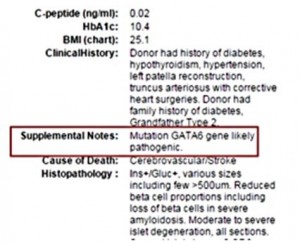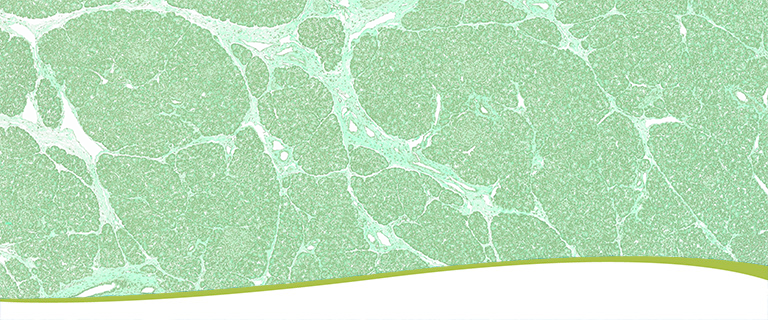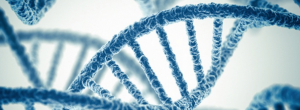Monogenic Cases Now Identified in the nPOD Repository
Genetic testing leads to new case classification in DataShare
Advancing technologies in the area of Next-Generation DNA Sequencing have revolutionized the study of genomics and molecular biology. The great majority of patients with monogenic diabetes would never be diagnosed without such gene testing and, as a result, are usually mis-diagnosed as having Type 1 or Type 2 Diabetes. Although we strive to make the most accurate diagnoses of nPOD Cases possible based on the information available to us at the time, it was inevitable that certain donors within the nPOD repository may have had undiscovered genetic mutations that would alter the classification of their disease.
In late 2014, nPOD partnered with Dr. David Carmody and Dr. Siri Greeley of the University of Chicago Monogenic Diabetes Registry in an effort to garner a greater understanding of the pathogenesis of monogenic forms of diabetes. Existing nPOD cases were reviewed by Registry physicians and considered for genetic testing if they met either of the following (those with a BMI of over 35 kg/m2 or an established diagnosis of cystic fibrosis were excluded):
• Diabetes diagnosed under 35 years of age without detectable antibodies associated Type 1 Diabetes (or)
• Diagnosed with Type 1 Diabetes but have evidence of C-peptide production >5 years after diagnosis
37 of the existing nPOD Cases were identified and subsequently processed at the University of Chicago using a Next-Generation Sequencing panel for the detection of mutations in over 30 genes (future Cases will also be screened and tested if they meet the criteria). Results of this testing have enabled us to now reclassify four nPOD Cases as Monogenic Diabetes:
• 6033 – (previously classified as T1D) mutation in KCNJ11ex1 gene likely pathogenic
• 6166 – (previously classified as Other) mutations in LMNAex5 and UCP2ex7 genes likely pathogenic
• 6176 – (previously classified as T2D) mutation in HNF1Aex1 gene likely pathogenic
• 6320 – (previously classified as Other) mutation in GATA6 gene likely pathogenic
We have updated these cases in DataShare and Aperio to the reflect this. To view the specific details of any changes in a case’s classification in DataShare, please see the field ‘Donor Type Comments’ in the ‘Demographics’ table, which can be found under the ‘Reports & Research Data’ tab:
To view the specific details of any changes in a case’s classification in Aperio, please see the ‘Supplemental Notes’ under the ‘Case Details’ section: If you have any questions about the new monogenic classification, or concerns over whether your research and/or publication will be impacted by this new information, please contact Investigator Coordinator pobee@ufl.edu.
If you have any questions about the new monogenic classification, or concerns over whether your research and/or publication will be impacted by this new information, please contact Investigator Coordinator pobee@ufl.edu.

